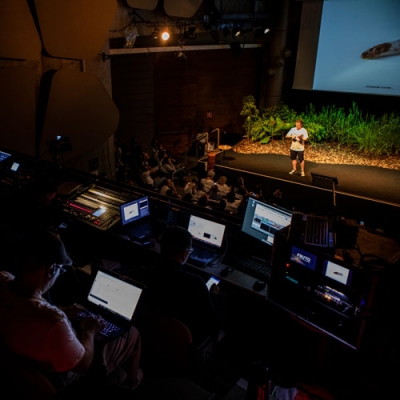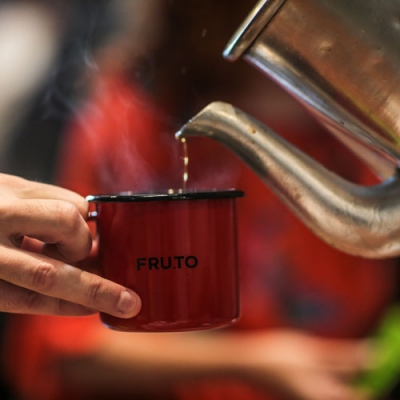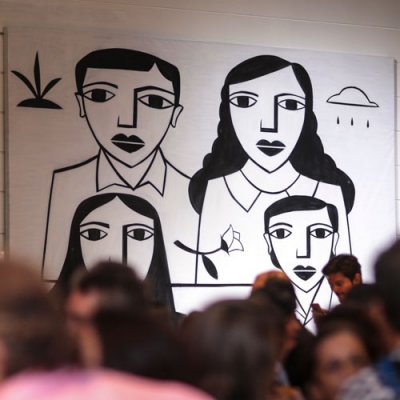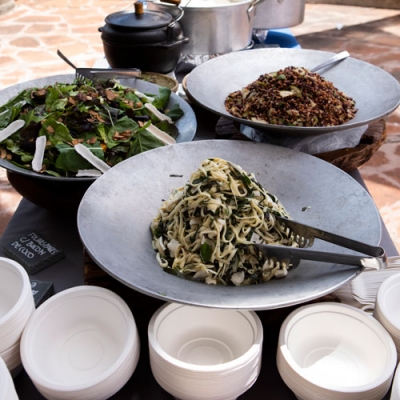





ROOTS
Prepared earth, seed planted, it is time to root our roots in fertile ground. The idea of FRUTO Roots is to point out some territories where we want to establish ideas, actions, projects and solutions. They are points indicated by the participants in the Food Dialogues on Education, Waste and Public Policies, and are gathered together with mediators Cristal Muniz (um Ano Sem Lixo), Érica Araium (Diálogos Comestíveis), Luiz Américo Camargo (gastronomic consultant).
Roots are our place of action in 2019.
It’s where we want to be and be this year.
Let’s go together?
PARTICIPANTS IN FOOD DIALOGUES
DESPERDÍCIO Anita Gutierrez, Daniela Leite, Luciana Gonçalves, Manu Buffara, Ronaldo dos Santos e Cristal Muniz
POLÍTICAS PÚBLICAS André Iera, Bel Coelho, Joe Valle, Nilto Tatto, Paola Carosella e Luiz Américo Camargo

WASTE
by Cristal Muniz
by Cristal Muniz
Estimates from the Food and Agriculture Organization of the United Nations (FAO) indicate that 1.3 billion tons of food are lost on the planet each year, about 30% of the total produced. This food would be enough to end hunger in the world. Waste is the most important issue when we have a food scarcity scenario and a population that only grows.
The further away the producer is, the more links need to exist in the chain and more waste is generated. Producing and consuming locally produces less loss of production. Integration of the productive chain.
If people are not equal, why do tomatoes need to be? As consumers we need to stop unifying plants as if they were not living organisms.
We need to stop generating waste by selecting the best part of the vegetable to eat and use the imagination to eat barks, stalks and leaves. Look at food differently. Use creativity. Awareness.
Educational work is very important. Everyone must know how to enjoy food in a comprehensive way, the most appropriate way of preserving and avoiding waste. Habit only changes with education. We need to rethink food and make people aware of it.
You need to change the lens. To see without fear that it is necessary to have a political action, next to public agencies. Greater control is needed in supply centers, information and education on urban gardens, popular restaurants, composting and strengthen connections, for example, such as Ceasa and popular meal projects.

EDUCATION
by Érica Araium
by Érica Araium
Search, coproduce, disquiet, dialogue, co-participate. Five active verbs of pressing demands to be considered when the “food education” guideline governs what is meant by “consumption and food production” in the family, educational and school settings. We can delineate new landscapes – more colorful, biodiverse, sustainable and nutritious – if we consider the valuation of all the actors of gastronomy. There needs to be empathy.
Understanding what serves as food, input and ingredient is something prior to the notion of gastronomic uses. The repertoire is built more empirically than chancelada by the technical domain. The planting, in the family, of small gardens, can serve to the dialogue around the table, to the resolution of the tastes, when elaborating demands that define the list of purchases and the correct destination of what is understood by “residue”. Those who are hungry are in a hurry. There are hungry people. And if there are people who are hungry, feed them. The notion of what nourishes and nourishes is the same notion of what it sustains – to sustain is to co-produce. Understand part of the production chain. Neoconsumer. Understand, definitely, that eating is a political act.
No matter the social class, but the sense of world belonging. In it, there are a plethora of responsibilities to be activated together. We can not absent ourselves as consumers and, whenever possible, act for more sustainable choices: to prefer local foods, to trace them, to inquire about the way in which they were produced, by what hands, and under what working conditions. It must be fair to the whole food chain and worthy of the food produced.
Understanding why certain information and discourses circulate and not others, understanding the silence and utterances of each historical subject in order to understand the way we eat, culturally, is imperative. It is necessary to participate in the construction of the narratives of the food, to re-signify them and to count them again with property. With the notion that all voices of every individual/citizen count – be it producer, educator, industrialist, activist, politician, or content producer. It is necessary to listen long before any dialogue is established. It is necessary to create a network of meaning that establishes the memories of eating. It is necessary to know the food so that we connect to it.
It will depart from them the meaning of memories. A lunchroom or school employee can educate as much as a “teacher” (in its strict sense, just to place normative assignments). We are all educators, so to speak, when we propose to explain to others what can mobilize the eating act. They even change boundaries that limit the differences of coexisting. It is from the sharing of uses and applications of food in their many contexts – some from resistance to occupation, many from hunger, some from excess of calories and nutritional gaps – that collectively builds a global eating that does not fit into patterns and/or distribution patterns. You have to communicate to educate. It is necessary to tell the stories of food and make them accessible for others to contain.

PUBLIC POLICIES
by Luiz Américo Camargo
by Luiz Américo Camargo
